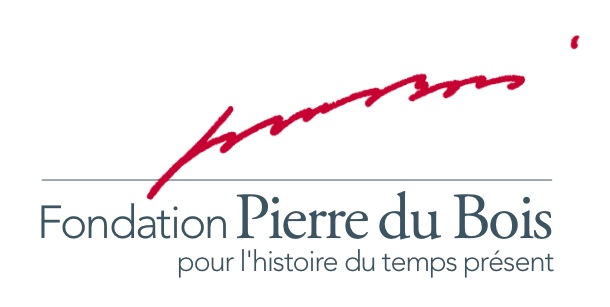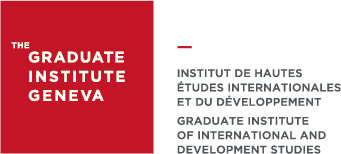Political Proteus: Nationalism’s Entangled Histories
26-27 August 2021
The Annual Pierre du Bois Conference, organized by the Graduate Institute in partnership with the Pierre du Bois Foundation and with support from the Swiss National Science Foundation, took place at Maison de la Paix from 26-27 August 2021. Professor Michael Goebel organized the conference. (The conference which was scheduled to take place in October, 2020, was postponed due to Covid 19.) A summary of the Conference will follow shortly.
Bernard Yack, the ‘Lerman Neubauer Professor of Democracy and Public Policy’ at Brandeis University, gave the Keynote Lecture titled, Being in Time: The Experience of Nationhood.
Please use the following hyperlinks to access information about the Keynote, the program, and the biographies of participants.
A summary of the conference can be seen below or by clicking here.
Conference PdB Goebel 2021
Background Note
The rise, or re-emergence, of nationalist rhetoric in many parts of the world in recent years confronts academic historians, of whom only few sympathize with such rhetoric, with new questions and challenges. Although many historians may temperamentally be slow to respond to short-term political exigencies, they have been caught up in a feverish climate of political confrontation even in countries where academia until recently seemed shielded from everyday party politics. What many believed to be evenhanded historical judgements have shown their potential miraculously to mutate into the fiery battle cries of political tribes.
Rather than discuss the merits and pitfalls of historians’ political engagement, the purpose of this conference is to debate whether the present political moment compels us to reassess our understanding of nationalism, both as an object of historical study and as a force shaping the history and practices of our discipline. In particular, the meeting seeks to query the relationship between the historical study of nationalism and methodological nationalism, which social scientists have widely condemned. Starting from our present political moment, the conference thus serves to take stock of the past decades’ major academic developments in history in relation to nationalism.
Nationalism, Historians, and the Global Turn
Institutionalized in good part in order to legitimize the nation-state, history for a long time melded political and methodological nationalism. In Eric Hobsbawm’s memorable phrase, “historians [were] to nationalism what poppy-growers in Pakistan [were] to heroin addicts: we suppl[ied] the essential raw material for the market.” Uncomfortable with this state of affairs, many historians in postwar Western academia strove instead to provide antidotes, even as it proved far more cumbersome to erode the profession’s stubborn methodological nationalism than to realign its political preferences. Long after academic historians in most countries had by and large ceased to champion nationalist leaders, it took the inexorable rise of transnational and global history to truly challenge the instinctiveness with which past generations had taken the nation as their natural unit of analysis.
Their discipline’s birthmarks and twentieth-century development largely explain historians’ peculiar relationship with the nation-state and nationalism, compared to the neighboring social sciences and humanities. Relatively prone to thinking in terms of national containers, historians were—as Nina Glick Schiller and Andreas Wimmer have enviously remarked—comparatively immune to another form of methodological nationalism: “ignoring or disregarding the fundamental importance of nationalism for modern societies.” In fact, historians have been providers of feedstock not only for nationalism, but also for the study and for theories of nationalism.
What can historians in the wake of their discipline’s global turn contribute to this debate? Transnational and global history has recently been charged with being overly enamored with networks, flows, and entanglements, overzealous in its animus against methodological nationalism, too concerned with cosmopolitans on the move, and thus negligent of the importance of place as well as of nationalism. Its defenders have instead pointed to a large scholarly corpus concerning the transnational entanglement of nationalism. In fact, if transnational and global history have forcefully driven home an argument about the global rise and spread of the nation-state form, it is that this phenomenon cannot be understood as having emerged from within single (nationally defined) societies, which then traveled as an intellectual template from one place to the next, but rather as an integral part of global processes itself.
Some of the most innovative recent historiography has concerned the breakup of multiethnic empires, a prime playground for the spread of nationalism. Whereas an older literature (often itself nationally inspired) had accustomed us to think of the Habsburg and Ottoman Empires, or the European colonial empires overseas, as doomed “prisons of peoples” (Völkergefängnisse) bound to fall apart under natural nationalist pressures, imperial historians such as Frederick Cooper and Pieter Judson have more recently warned against the teleology of the nation-state. Though not exactly “disregarding the fundamental importance of nationalism for modern societies,” they have nonetheless minimized it, pointing to its limited popular appeal. Instead, they have suggested the long-term plausibility of alternatives to the nation-state as the main vessel of sovereignty.
 It is unclear as yet whether and how this recent historiography can feed theories of nationalism, except for reasserting that nationalism can be an unintended by-product of something else, or that its historical rise and spread was more contingent than any kind of theory implies. There is little to suggest that the new historical scholarship on imperial disintegration will move historians to abandon their characteristic reserve when it comes to grand theorizing. Nor that others will listen: A recent issue of Foreign Affairs on “The New Nationalism” gets by with scant input from historians in spite of their possible usefulness in assessing the newness of today’s nationalism suggested by the issue’s title (which most contributors in fact implicitly dismiss, instead assuming the persistence of nationalism).
It is unclear as yet whether and how this recent historiography can feed theories of nationalism, except for reasserting that nationalism can be an unintended by-product of something else, or that its historical rise and spread was more contingent than any kind of theory implies. There is little to suggest that the new historical scholarship on imperial disintegration will move historians to abandon their characteristic reserve when it comes to grand theorizing. Nor that others will listen: A recent issue of Foreign Affairs on “The New Nationalism” gets by with scant input from historians in spite of their possible usefulness in assessing the newness of today’s nationalism suggested by the issue’s title (which most contributors in fact implicitly dismiss, instead assuming the persistence of nationalism).
Herein lies the rub that goes beyond history: Theories of nationalism, whether written by historians or others, have been so focused on the “origin and spread of nationalism,” as the subtitle of the field’s most famous book announced. Social scientists, and historians in particular, have thus focused on aspirational nationalisms. John Breuilly even commented once that “nationalism remains distinctive only for so long as it is unsuccessful.” With the stakes around the formation of new nation-states high, nationalism was a hot topic. After the Yugoslav Wars and the breakup of the Soviet Union had generated a boom in nationalism studies, the field turned increasingly stale. The near universal implementation of the nation-state principle may have led to diminishing scholarly returns.
Today, funding applications are far more likely to include the adjective “global” than the noun “nation” or any of its derivatives. The lopsided scholarly concentration on aspirational nationalisms in the run-up to some key date—say, mid-nineteenth-century Italy or Germany, India in the first half of the twentieth century, Croatia in the 1980s, Tibet or Catalonia today—has left us ill-equipped to make sense of “the new nationalism” by which the editors of Foreign Affairs seem to have in mind Orban’s Hungary, Modi’s India, Brexit Britain, and Trump’s America. Manifestations of nationalism in existing nation-states are typically treated as evidence of the phenomenon’s endurance (without asking questions about the reasons of such endurance), blanketly assumed to be all but unavoidable reactions against globalization, or shrugged off as nationalism’s irredeemable Proteanism.
But surely there is more to be said about the relationship between past and present nationalisms: What can historians, against the backdrop of their discipline’s global turn in recent years, contribute to discussions concerning this relationship? Does the present moment require us to re-think what has been said about our discipline’s methodological nationalism? Does it necessitate a new understanding of the history of nationalism? And how have academic attitudes toward methodological nationalism, during the last thirty years or so, interacted with the study of nationalism as a historical phenomenon? These will be the questions addressed by this year’s Pierre du Bois Conference.




